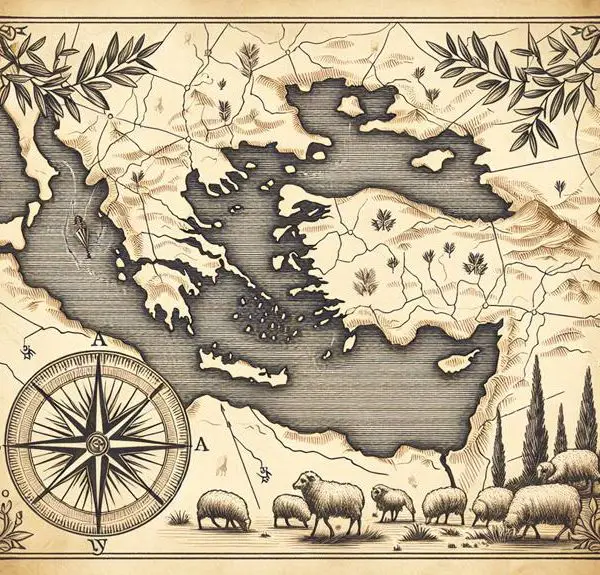Immerse yourself in the exploration of the Bible's Royal Law, uncovering its ancient wisdom and modern implications for a life of love and…

Royal Law in the Bible
The concept of 'Royal Law' in the Bible, often encapsulated by the imperative to 'love your neighbor as yourself,' presents a profound exploration into the intertwining of divine commandments and human relational ethics.
This principle, while rooted in ancient texts, carries significant implications for contemporary believers, challenging them to reconcile the demands of a higher moral code within the complexities of modern society.
As we embark on this examination, one must consider not only the historical and scriptural foundations of this law but also its practical application and the potential challenges it poses to adherents.
The exploration of such a topic promises to uncover layers of theological, ethical, and practical significance, inviting a deeper understanding of what it means to live out one's faith in accordance with divine principles.
Key Takeaways
- Royal Law represents God's divine commands, emphasizing justice and moral excellence in biblical texts.
- It integrates love as a core principle, showing how love fulfills and guides ethical behaviors according to divine statutes.
- Biblical references from Deuteronomy to Psalms highlight Royal Law's significance in guiding kings and followers towards righteous living.
- The practical application of Royal Law involves embodying love, selflessness, and integrating these values into daily life and community interactions.
Defining Royal Law

In the context of biblical texts, 'Royal Law' refers to the divine commandments which, according to scripture, embody the sovereign will of God and are intended to govern the moral and social behavior of His people. This concept is deeply rooted in the legal origins of Judeo-Christian traditions, where law is seen not merely as a set of rules but as a manifestation of divine wisdom and justice. The term itself suggests a hierarchical structure in its governance, with the deity at its apex, much like a monarch in a worldly kingdom. This analogy is not accidental but reflects the monarchical influences pervasive in the times and cultures that produced the biblical texts.
The legal origins of Royal Law can be traced back to ancient Near Eastern legal traditions, where laws were often issued by kings and considered to have divine backing. This context is crucial for understanding how Royal Law in the Bible amalgamates human monarchic practices with divine authority, creating a unique theological and legal framework. The laws handed down through figures such as Moses are presented not just as societal norms but as decrees from a divine monarch, God Himself.
The incorporation of monarchical influences into the conception of Royal Law is evident in the biblical portrayal of God as a king, issuing commandments from His throne in heaven. This portrayal serves to underline the absolute authority of divine law, elevating it above human laws and rulers. It situates the legal and moral directives of the scriptures within a framework that would have been both familiar and authoritative to its ancient audience, thereby reinforcing their significance and divine origin.
Historical Context
Understanding the historical context of Royal Law requires an examination of its roots in ancient Near Eastern civilizations, where the intertwining of divine command and monarchical decree shaped the foundational principles of legal and moral governance. This convergence of religious and royal authority is not unique to any single culture within this region but is a widespread phenomenon that provides critical insights into the development of legal systems under ancient monarchies. The concept of Royal Law, as it is contemplated within the biblical narrative, cannot be fully appreciated without acknowledging the cultural influences and the pivotal role of monarchs in these early societies.
Ancient monarchies were not merely political entities but were deeply embedded in the religious fabric of their times. Kings were often seen as chosen by the gods or even as deities themselves, which endowed their legal pronouncements with divine legitimacy. This dual role of king and divine intermediary meant that laws could be positioned as both civic duty and religious obligation. The implication of this for understanding Royal Law within a biblical context is profound. It suggests that the laws articulated by biblical monarchs were not merely secular decrees but were imbued with a religious significance that reflected a broader ancient Near Eastern tradition of divine-kingly rule.
Furthermore, the cultural influences on the development of Royal Law are significant. Interactions among various civilizations, through conquests, trade, and diplomatic relations, facilitated a cross-pollination of legal ideas and practices. This exchange enriched the legal traditions of ancient societies, including those reflected in biblical texts, and contributed to the evolution of Royal Law as a principle that transcended mere human authority, reflecting a divine moral order.
Key Biblical References

Several biblical passages serve as foundational references for understanding the concept of Royal Law, illuminating its significance and application within the scriptural narrative. These texts not only explore the origins of the Law but also underscore its enduring relevance in the realm of Biblical jurisprudence. The exploration of Royal Law through a scholarly and analytical lens reveals its complex interplay with the broader legal and moral framework presented in the Bible.
The book of Deuteronomy, particularly, offers insight into the Law's origins and its divine endorsement. Deuteronomy 17:18-20, for example, instructs kings to write for themselves a copy of the Law, underscoring the importance of a ruler's adherence to divine statutes as a model for the kingdom. This passage highlights the Law's role in ensuring just and godly leadership, emphasizing its significance beyond mere legalism to encompass a moral compass for governance.
Similarly, the book of Psalms provides reflections on the Law's perfection and its role in guiding ethical conduct. Psalm 19:7-11 praises the Law's ability to revive the soul and make wise the simple, illustrating the Law's broader purpose in nurturing righteousness and moral integrity among the faithful.
Through these and other passages, the concept of Royal Law is revealed not merely as a set of rules but as a divine mandate for justice, leadership, and moral excellence. The exploration of its presence and application within biblical texts is critical for a comprehensive understanding of Biblical jurisprudence and the Law's foundational role in shaping ethical and legal standards within the scriptural tradition.
Love and the Law

The intersection of love and law within biblical texts presents a nuanced exploration of moral and ethical imperatives.
The concept of love's commandment essence suggests a foundational role in the fulfillment and interpretation of legal mandates.
Analyzing how love functions to fulfill the law not only illuminates the intricacies of biblical legalism but also underscores the centrality of love in theological discourse.
Love's Commandment Essence
At its core, the concept of love as embedded in the law serves as a fundamental principle guiding moral and ethical behaviors within biblical teachings. This principle is not merely about adherence to rules but encompasses a deeper understanding of emotional intelligence and compassion.
Emotional intelligence, in this context, refers to the capacity of individuals to recognize their own emotions and those of others, facilitating empathetic interactions that mirror the love commanded by the law. However, this constant engagement in empathetic practices can lead to compassion fatigue, a condition marked by emotional and physical exhaustion due to the prolonged demand for compassion.
Thus, the essence of love's commandment within the law also necessitates a balance, ensuring that individuals can sustain their ability to love without succumbing to compassion fatigue.
Fulfilling Law Through Love
Understanding the essence of love's commandment as a foundation for moral and ethical behaviors, it becomes essential to explore how love fulfills the law within biblical teachings. The intertwining of love and the law offers a robust framework for understanding:
- The avoidance of legalistic pitfalls through the prioritization of love's principles.
- Emotional obedience as a heartfelt response to divine commandments, rather than mere compliance.
- The transformative power of love in interpreting and applying the law.
- The emphasis on relational harmony and well-being over strict adherence to legal codes.
This approach underlines the importance of love as the ultimate fulfillment of the law, steering believers away from the dangers of legalism and towards a more compassionate, empathetic practice of faith.
Implications for Believers

Exploring the implications of Royal Law as delineated in the Bible reveals profound impacts on the spiritual and ethical lives of believers. The Royal Law, often summarized as loving one's neighbor as oneself, extends beyond mere sentimentality to encompass a comprehensive framework for living. This framework has tangible legal implications and necessitates a form of spiritual obedience that is both personal and communal.
The first subtopic, focusing on legal implications and spiritual obedience, underscores the dual nature of the Royal Law. On one hand, it acts as a legal guideline within the spiritual community, establishing norms and expectations for behavior. On the other hand, it calls for an internal transformation that aligns one's heart and actions with divine will. This dynamic interplay between the external and the internal aspects of the law challenges believers to integrate their faith into every facet of their lives, fostering a holistic approach to spirituality.
To elucidate the multifaceted implications of the Royal Law for believers, the following table outlines key areas of impact:
Aspect |
Description |
Relevance |
|---|---|---|
Legal Framework |
Establishes ethical standards and communal expectations. |
Guides behavior |
Spiritual Obedience |
Cultivates an inward disposition of love and selflessness. |
Transforms character |
Communal Harmony |
Promotes peace, understanding, and cooperation. |
Enhances social bonds |
Royal Law in Practice

Implementing the Royal Law in everyday life necessitates a deliberate and conscious effort from believers to embody its principles of love and selflessness in their interactions with others. This enactment extends beyond mere personal conduct, intertwining with the broader aspects of religious observance and community engagement. At its core, practicing the Royal Law involves integrating the ethos of compassion and equity into the fabric of one's life, drawing inspiration from monarchical symbolism and the solemnity of court rituals to foster a sense of communal responsibility and spiritual nobility.
The application of the Royal Law in practice can be more deeply understood through the following aspects:
- Community Service: Emulating the servant leadership exemplified in monarchical symbolism, believers are encouraged to participate actively in community service, demonstrating love and selflessness through tangible acts of kindness and support for the needy.
- Religious Observances: Court rituals, with their rich symbolism and structured order, can inspire the structure of religious ceremonies and personal spiritual practices, emphasizing reverence, humility, and the pursuit of justice.
- Interpersonal Relationships: The principle of treating others with love and respect, as sovereigns in their own right, encourages the cultivation of healthy, supportive relationships that reflect the Royal Law's essence.
- Personal Development: Commitment to personal growth and self-reflection, guided by the virtues of love and selflessness, mirrors the discipline and dignity associated with royal conduct.
Challenges and Perspectives

The interpretation of Royal Law within biblical texts presents significant variability, reflecting diverse theological perspectives and exegetical approaches.
Contemporary application of these ancient principles raises complex issues, particularly when aligning them with modern legal and ethical standards.
Furthermore, the historical context in which these laws were formulated significantly impacts their relevance and adaptability to current societal norms and values.
Interpretation Variability
Interpreting the royal laws within the Bible presents a complex challenge, given the vast spectrum of historical, cultural, and linguistic contexts that influence their understanding. The variability in interpretation stems from several critical factors:
- Cultural influences: Different cultures can perceive and apply biblical texts in ways that significantly alter their original intent or meaning.
- Translation variations: The Bible has been translated into numerous languages, with each translation potentially introducing subtle shifts in meaning.
- Historical context: Understanding the historical backdrop against which these laws were written is essential for accurate interpretation.
- Linguistic nuances: The original languages of the Bible (Hebrew, Aramaic, and Greek) contain nuances that are sometimes lost or altered in translation.
These factors underscore the challenges and perspectives that scholars and readers face when interpreting royal laws in the Bible.
Modern Application Issues
Applying biblical royal laws to contemporary contexts presents multifaceted challenges, reflecting a diverse range of interpretations and societal values. The endeavor to integrate or align these ancient statutes with modern legal systems often encounters legal reforms and societal resistance, complicating their application and relevance. This process demands a nuanced understanding of both the historical essence and current societal norms.
Challenge |
Impact on Legal Reforms |
Societal Response |
|---|---|---|
Interpretation |
Ambiguity in laws |
Resistance, Debate |
Cultural Relevance |
Misalignment |
Dismissal, Adaptation |
Ethical Considerations |
Conflicts with modern values |
Criticism, Discussion |
Practical Implementation |
Legal system adjustments |
Acceptance, Rejection |
These issues underscore the complexities involved in modernizing biblical royal laws, necessitating a balanced approach that respects historical significance while addressing contemporary expectations and realities.
Historical Context Impact
Understanding the historical context of biblical royal laws is paramount to grappling with the complexities of their adaptation and relevance in the modern era. These laws did not exist in a vacuum but were deeply intertwined with the cultural influences and societal norms of their time. Their impact and the challenges they present when viewed through a contemporary lens can be highlighted by considering:
- The influence of surrounding ancient Near Eastern legal systems.
- The role of monarchy and divine right in shaping societal norms.
- The evolution of societal norms and values over millennia.
- The challenges of interpreting texts shaped by vastly different cultural and historical contexts.
Analyzing these elements offers a nuanced perspective on the historical context's impact, providing a foundation for understanding the ongoing dialogue between ancient texts and modern application issues.
Frequently Asked Questions
How Does the Concept of Royal Law Relate to or Differ From the Laws of Modern Constitutional Monarchies?
The concept of royal law, traditionally rooted in divine or monarchical authority, markedly contrasts with the laws of modern constitutional monarchies, which have evolved considerably.
Modern constitutional frameworks are characterized by a clear separation of powers, limiting monarchical authority and ensuring laws evolve through democratic processes.
This constitutional evolution signifies a transition from monarch-centric legislations to a more inclusive, rights-based legal framework, underscoring the divergence from historical royal law paradigms.
Are There Examples Outside of the Bible Where Royal Law Has Influenced the Legal Systems or Ethical Standards of Societies?
In examining the influence of royal law on legal systems and ethical standards, one finds that ancient governance structures often reflect ethical parallels in their societal codes.
For instance, the legal codes of ancient Mesopotamia, such as the Code of Hammurabi, exhibit principles that have permeated through time, influencing modern legal and ethical frameworks.
These ancient decrees underscore the enduring impact of monarchial edicts on the evolution of societal norms and judicial practices.
How Have Different Christian Denominations Interpreted the Concept of Royal Law, and Has It Led to Significant Theological Disputes?
The interpretation of royal law has served as both a bridge and a barricade among Christian denominations.
It highlights the delicate balance between denominational unity and scriptural interpretation.
While some denominations view it as a cornerstone for theological alignment, others see it as a source of significant disputes.
This divergence underscores the complexity of theological discourse, where the quest for doctrinal clarity often navigates through the murky waters of interpretive variance.
In What Ways Might Understanding Royal Law Impact Interfaith Dialogue, Especially With Religions That Do Not Have a Similar Concept?
Understanding the concept of 'Royal Law' within a specific religious framework can enhance interfaith dialogue by fostering respect and cultural understanding.
Analyzing this concept, devoid of its religious context, allows for an objective examination of its ethical and moral implications.
Such an approach can bridge gaps between faiths that may not share similar doctrines, promoting a scholarly and analytical discourse that emphasizes common values over doctrinal differences, thereby enriching interfaith respect and cultural understanding.
Can the Principles of Royal Law Be Applied to Contemporary Issues Such as Social Justice, Environmental Stewardship, or Global Peace Initiatives, and if So, How?
Principles akin to royal law can indeed be adapted to address contemporary issues, weaving a tapestry of economic equity, digital ethics, social justice, and environmental stewardship.
Through an analytical lens, one finds these timeless tenets can foster a framework for global peace initiatives.
Conclusion
In conclusion, the concept of royal law, as delineated within the biblical texts, represents a foundational principle that transcends mere legalistic adherence, embedding itself into the fabric of moral and ethical Christian living. It underscores the paramount importance of love as the ultimate fulfillment of the law, offering a compass for believers navigating the complexities of faith in practice.
Despite historical and contemporary challenges, this principle remains a beacon, guiding the faithful towards a more compassionate and equitable existence, reminiscent of a lighthouse in a tempestuous sea.



Sign up